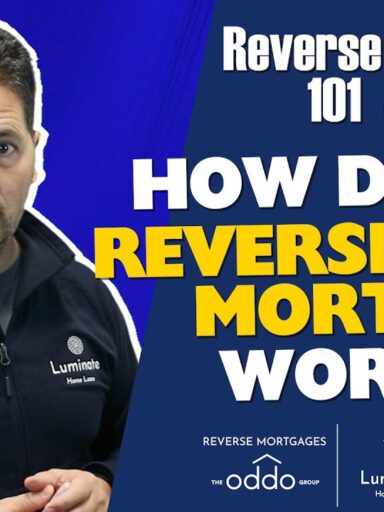Mortgage brokers are middlemen in the world of mortgage loans. They broker loans for individuals and businesses. Mortgage brokers have extensive experience in helping borrowers secure financing for their homes and businesses. Here are some important things to know about mortgage brokers. If you’re thinking about using one to help you with your home financing, read on to learn more. You can choose a broker based on your needs, experience, and budget. Once you have chosen a broker, you’ll be on your way to owning your new home.
Getting a mortgage from a mortgage broker
Using a mortgage broker is an option you may want to consider if you are in the market for a mortgage. Unlike banks, mortgage brokers can shop around among several lending partners to find the best loan rate and terms for your situation. You can get competitive quotes from mortgage brokers because they have access to several lenders’ direct lines of business. Mortgage brokers can also assist first-time home buyers with lower down payments and better interest rates.
When compared to direct lenders, mortgage brokers offer many benefits. Mortgage brokers can help you avoid the hassle of visiting multiple lenders, and they will only affect your credit score. They can also help you obtain an easier mortgage loan, especially for less qualified borrowers or those looking to purchase less traditional properties. In addition to their expertise, mortgage brokers can handle the communication process with mortgage lenders on your behalf. However, it is important to understand that mortgage brokers do not handle the loan application process, so you need to compare their fees and interest rates.
If you have decided to use a mortgage broker, it is important to understand how brokers make their money. Most brokers earn a commission on the mortgage loan, and some of them make the decision to prioritize mortgages from lenders with lower interest rates. As a result, the fees you pay to a mortgage broker should be accounted for as part of the mortgage loan amount. But it is always worth asking about the fees associated with using a broker before finalizing any loan.
Once you have decided which lender is the best option for you, a mortgage broker will guide you through the process. The broker will verify income and credit history and work with other parties such as the closing agent and real estate agent to make the transaction a smooth and easy one. Mortgage brokers have access to many lenders, which means they are able to offer a wider range of loan options than a loan officer.
Working with a mortgage broker
A mortgage broker is a licensed professional who acts as a middleman between a borrower and a lender. Mortgage brokers can help match borrowers with the most competitive loan terms. In addition to working with borrowers, brokers can help match borrowers with special loans and refinancing options. Many brokers work with multiple lenders to maximize borrowers’ options. For these reasons, borrowers should always consult with a mortgage broker.
Mortgage brokers also negotiate on behalf of borrowers. Borrowers who work directly with lenders may receive better rates. However, if you already have a business relationship with a lender, it is likely that working directly with that lender will result in a better deal. Working directly with a lender can also benefit borrowers who prefer to work with a particular lender. Mortgage brokers are not lenders; instead, they work with a large network of lenders and act as a middleman.
A mortgage broker may be your best option if you’re a first-time homebuyer. They can help you save a lot of time, and can also help you refinance your home at a lower interest rate. But before you decide on working with a broker, you should know your financial situation. The broker will check credit scores and income, so be honest with your mortgage broker about any financial issues.
When working with a mortgage broker, make sure to check the licensed brokers in your area. Make sure to look for one with experience and a proven track record in the industry. Check the broker’s background and fee structure. If possible, ask for referrals from friends and family. A real estate agent can also help you. You’ll want a broker who has a good reputation with lenders. In addition to checking references, your mortgage broker should have a website where consumers can post reviews.
When working with a mortgage broker, you can often find better deals than if you go directly to lenders. Their extensive network of contacts and access to special programs allow them to obtain better deals for their clients. The fees charged by a mortgage broker are often priced into the loan interest rate and the closing costs, so you can benefit without a huge outlay of cash. When working with a mortgage broker, it’s important to choose a lender that offers the best terms.
Paying a mortgage broker
The fee that a mortgage broker charges a borrower is usually a percentage of the loan amount, but some brokers may charge the borrower directly. Either way, the fees are usually rolled into the total loan amount. In addition to the commission, mortgage brokers are also prohibited by federal law from receiving kickbacks or hidden fees from related businesses. Despite this, it’s important to remember that mortgage brokers are not free.
Banks have thousands of salespeople who are paid by banks. Banks also pay their employees’ salaries and other overheads like taxes and super. This is why bank mortgage rates are higher than brokers’. A good mortgage broker will make his income by marketing loan options. And the mortgage broker will be paid by the bank for his or her efforts. And the bank also has the advantage of paying clients for their experience. So, it’s not surprising that banks are more expensive than mortgage brokers.
Mortgage brokers typically charge a fee for their services, which may not be appropriate for every situation. A commission of about 2% of the loan amount is standard, but some brokers may charge more. These fees may be too high for some borrowers. For example, if a broker works on commission from a lender, they might try to get a larger loan, putting the borrower’s finances at risk. Mortgage brokers may also charge a fee for the work they perform for a client, but it should be clearly disclosed.
While it is true that a mortgage broker may earn a commission from one lender, the fee you pay to them is a small fraction of the total loan amount. However, you should keep in mind that mortgage brokers are not free of charge and may have an unfair bias. Even if you get a better deal, you may have to pay a higher commission than you would otherwise have. That’s why the commission may not be as high as the lender originally promised you.
A mortgage broker’s salary depends on their level of expertise and the location. Some brokers are self-employed, while others work for a larger firm with a number of mortgage brokers. When the mortgage broker is an employee, the fees are often based on the percentage of the mortgage amount that he or she closes. In addition, more experienced brokers are paid higher than those who are new or working part-time. If you are paying a mortgage broker on a part-time basis, you can add the fee to the loan or pay it at closing.
Choosing a mortgage broker
Choosing a mortgage broker is an important step in purchasing a home. First-time home buyers may not be familiar with home loans and need help navigating the lending maze. They must understand the policies of various lenders, as well as the different interest rates and loan products available. The entire process can take months, and a mistake could lead to a cautionary tale. It is important to find a mortgage broker with the right experience and qualifications, who will match your needs with a variety of lenders.
When choosing a mortgage broker, the first step is to compare different brokers. Make a list of the top three mortgage brokers and ask them questions to determine if they are right for you. Mortgage brokers will work with a wide variety of lenders, and their network allows them to provide various mortgage options to their clients. However, not all mortgage brokers offer all loans, so make sure to find out whether or not the broker offers the type of loan you need.
Another important consideration is the size of the broker’s panel. A good broker will have access to a range of lenders and can research various types of mortgage products for you. Depending on your employment situation and income, a mortgage broker will be able to determine whether or not you qualify for a particular mortgage product. In addition, a good broker will ask about your credit history, employment status, and any other pertinent information that may impact your ability to qualify for the best mortgage. A good broker will be able to explain how lenders view different types of clients.
Taking the time to do a simple online search is an easy way to find a mortgage broker’s reputation and credibility. Reviews are an excellent way to see what other people have to say about a particular broker. If a broker has won an award or two, this will make it much easier for you to make an informed decision. Choosing a mortgage broker with an excellent reputation in the community is an essential step to take.



